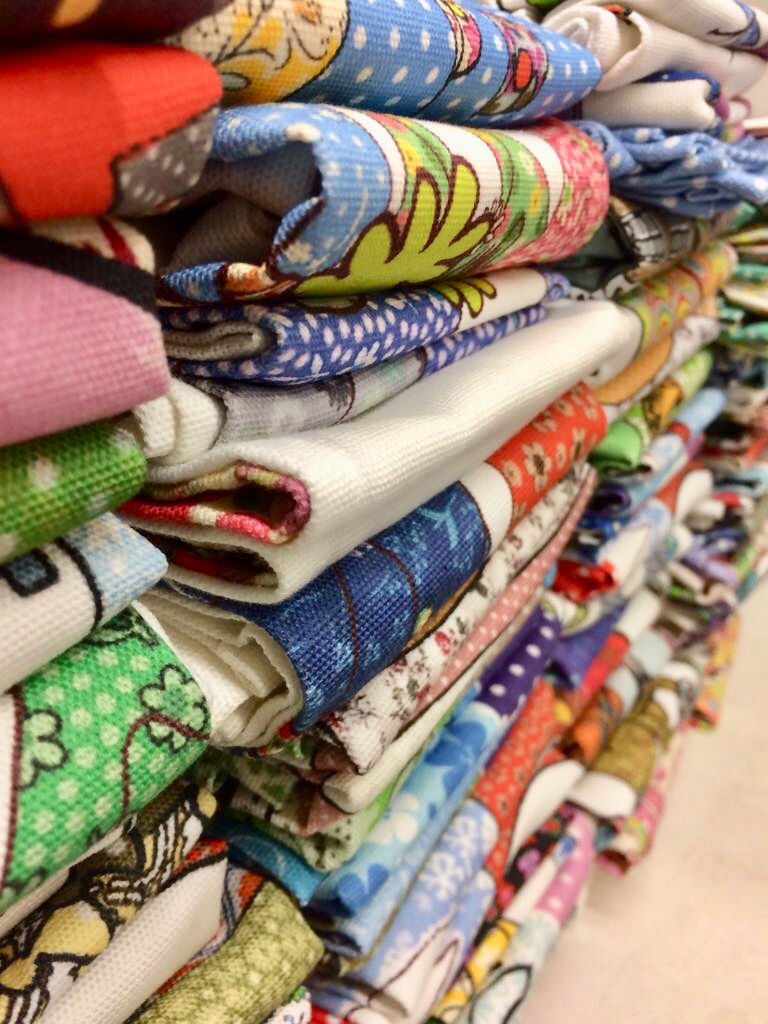How to care for tea towels
- Lisa from MollyMac

- Apr 13, 2022
- 3 min read
Updated: Sep 26, 2023
You have finally done it, you have bought yourself some beautiful tea towels to enhance your home decor and adding lots of lovely colour to your kitchen and dining experience!
You have taken them out to gaze lovingly at their beautiful designs but what's this? The tea towel is a little stiff and you are sure it won't be the absorbent cloth you were expecting - gorgeous, beautiful but not the practical cloth you have been longing for.
You are not alone. If you ever see any tea towel company criticised it is most likely to be because the person who bought them does not understand the printing process used and that new tea towels have a fabric softener sheen on them when you buy them.
It makes them feel crisp and new and look lovely, presentable to gift and rather gorgeous but it does not make them as absorbent. So before you leave a terrible review read this little blog and learn what you can do about it.
1. WASH YOUR TEA TOWELS - Before you use them put your new kitchen towels into an empty washing machine - don't be tempted to add lots of other washing and over pack the machine. This wash is for the new tea towels only. If you have just gone and cleaned out our web site of every beautiful tea towel there please do separate the darks from the lights and wash them in half loads.
2. START WITH HOT WATER - Start the rinse cycle with hot water which will break down the fabric softener finish. Make sure the tea towels are completely submerged and you do not need to add detergent. - add a cup of white vinegar instead in the place you usually put the detergent, about 240ml and let the machine go through the normal wash cycle.
What? Vinegar? I hear you say...yes vinegar. Not only has it got anti bacterial properties but it also loosens zinc salts which will break down the finish left by the fabric softener.
Won't it make my tea towels smell like fish and chips? No Washing your tea towels in vinegar will leave them odorless and not smelling like vinegar at all.
Isn't that expensive? No Vinegar is relatively cheap and environmentally friendly.
3. WHAT NEXT - Ok, when the cycle has finished leave your tea towels in the machine and start the same wash cycle again, but this time add half a cup of baking soda to the place you put your detergent! Remember no detergent needed.
What does that do? I hear you ask. Well it regulates the pH in your tap water and will get rid of any residue of the finish on the tea towel whilst maintaining the brightness of the colours in the tea towel.
4. NOW WHAT? - When that wash cycle is done take your tea towels out and dry them in the usual way.
VERY IMPORTANT TIP
Don't try and cut corners by adding the vinegar and the baking soda to one wash. No, no no but you can use baking soda and vinegar to unblock your drains- I'm not sure how you'll have to look it up! What I do know is it will cause a big foamy mess and could damage your washing machine!
Further Care for your Tea Towels:
Always wash your tea towels in small loads and use about half the amount of detergent than you usually do and do not use any fabric conditioner. Fabric conditioner won't keep those tea towels super absorbent.
If you want to use a natural fabric conditioner you could add either some white vinegar or even apple cider vinegar to your wash. Using vinegar - only the white distilled or the apple cider vinegar mind - using other vinegars like malt, balsamic or red wine are all likely to cause staining and frankly that would be an utter disaster.
Washing with vinegar to use as a fabric softener works but it will be odorless. If you want your tea towels to smell divine you do need to add about five drops of your favourite essential oil. When do you add the vinegar? To your last rinse cycle just like any other fabric softener.

Another Very Important Tip....
Last but not least - Vinegar is acidic so never pour it straight onto the tea towels, dilute it in a bit of water first. It goes without saying but do not use vinegar if you are allergic to it! Is that a thing? Apparently, and although rare, be aware you can be allergic to vinegar!
For more home tips, great home products and brilliant ideas follow us on instagram @MollyMacLiving








Comments